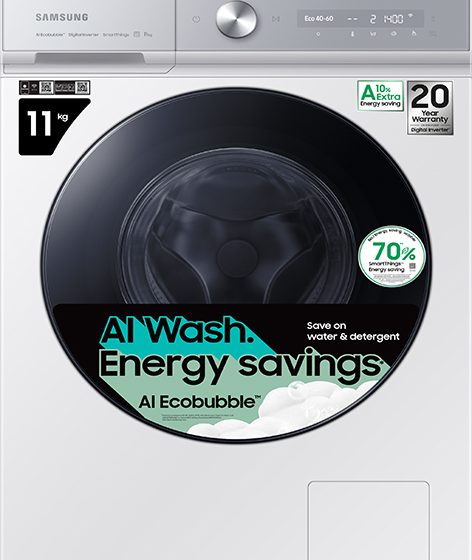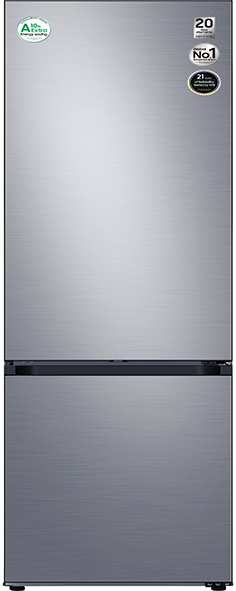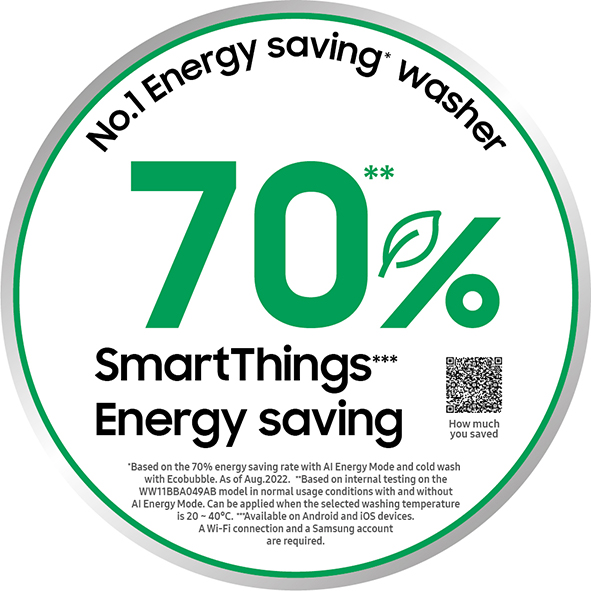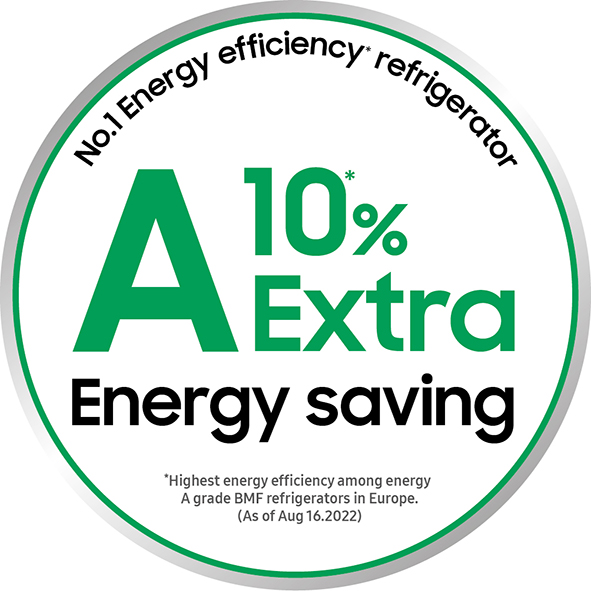eNovate and Cobi Launch Large-Scale AI-Powered Digital Payment Infrastructure
Samsung Announces Plans to Create the Ultimate Sustainable Home Experience

SEOUL, Korea 3 September 2022: Samsung Electronics Co., Ltd., revealed today at IFA 2022 its vision of creating the ultimate sustainable home through advanced energy savings technologies and strategic partnerships as the company sets its sights on becoming the No. 1 energy-efficient appliance brand.
“As customers’ needs are shifting towards more sustainable options, we are excited to meet those needs by delivering the latest energy-saving, smart appliances,” said JaeSeung Lee, President and Head of Digital Appliances Business at Samsung Electronics. “By leveraging efficient appliances with the synergistic features of SmartThings, we are planning to offer a truly sustainable home experience like never before.”

No 1. In Energy Savings Through Smart Technologies
With the introduction of SmartThings Home earlier this year, Samsung laid the foundation for creating a truly sustainable home. Combining connected appliances with services such as SmartThings Energy[1] with AI Energy Mode, users are able to maximize energy savings, through optimizations.
For Samsung’s No.1 energy efficiency rated washing machines[2], SmartThings Energy with AI Energy Mode optimizes laundry cycles[3] with technologies such as AI Ecobubble™ which cuts energy by up to 70%[4] by washing clothes with cold water while still delivering powerful cleaning.
Samsung refrigerators, also rated No. 1 in energy efficiency in its category[5], benefit with SmartThings Energy with AI Energy Mode by intelligently adjusting temperatures based on door opening patterns and compressor speed[6], saving users up to 10% on energy use. This savings is expected to increase to 30% by the end the year— up to 15% through AI algorithm which optimizes compressor speed and defrost cycle[7] with an additional 15% reduction through maintaining a higher average internal temperature[8] in the refrigerator.
Other notable energy savings include 40%[9] for the Eco Heating System, 20% for dryers, and 20%[10] by the end of this year for the Residential Air Conditioner (RAC)[11].
Further, in the European market starting this month, for new Bespoke AI™ laundry appliances, Bespoke Bottom Mounted Freezer and Eco Heating System (EHS), Samsung is pushing to go beyond what is required with the current “A”[12], delivering an added 10% extra energy savings for applicable models.

Together, these energy savings serve as precursor to the future of sustainability that Samsung envisions for its appliances. As such, Samsung has set a goal of ensuring, by 2023, 100%[13] of major appliances such as refrigerators, washing machines and RAC and EHS will be Wi-Fi enabled and SmartThings integration capable.
Beyond appliances, with Q CELLS, Samsung has developed the Net Zero Home[14], a truly self-sustainable home capable of generating and storing sustainable energy from solar panels to power the latest efficient Samsung appliances, all intelligently controlled by SmartThings.
Changeable Bespoke Designs Adapting to Home Life
The sustainability of Samsung appliances can also be found in the adaptable designs for the Bespoke products. Modularity and changeable panels built into appliances, such as the Bespoke refrigerators, reduce waste by extending the lifespan of appliances. Users can purchase additional designs and easily switch the panels on their Bespoke refrigerators as their lives evolve, which in practice means appliances can be updated instead of being thrown out as needs change.

Committing to Sustainability through Durability, 20-year Warranty
Also included in Samsung’s vision for sustainability is the backing of the company’s advanced Digital Inverter Technologies (DIT). Built on more than 25 years of research and development, DIT affects everything from energy efficiency to performance as well as the durability of major appliances.
By offering a 20-year warranty[15]—Samsung’s most comprehensive warranty to date—for Digital Invertor Motors and Digital Inverter Compressors, the company is not only backing its confidence in the reliability of its products but further making a commitment to reduce waste and promote sustainability[16]. For users, the warranty means extra peace of mind knowing they can use their appliances for years to come.
Collaboration to Create Cleaner Technologies
In becoming the leader of energy efficient consumer technology, Samsung is also collaborating with companies with eco-conscious goals. With Patagonia, Samsung has developed washing machine technologies to cut microplastic pollution produced from laundry. The new washing machines, slated for release in September, will be able to reduce microplastic pollution from laundry by an impressive 54%.[17] New washing machines are not the only ones to benefit as all connected washers will also gain access to this course by the end of the year through updates.
As sustainability becomes a critical factor in our lives, Samsung is excited to lead by creating home appliances that can help save energy and resources at home. Join us for IFA 2022 or visit Samsung.com to learn more.
[1] SmartThings Energy currently works with around 40 Samsung home appliances that are SmartThings enabled. These include washing machines, clothes dryers, dish washers, air conditioners, air purifiers, vacuum cleaners, ovens, hoods, cooktops, microwave ovens, TVs (models launched after June 2022) and energy meters.
[2] Based on the 70% energy saving rate with AI Energy Mode and cold wash with EcobubbleTM. (As of Aug 2022)
[3] Can be applied when the selected washing temperature is 20 ~ 40°C.
[4] Based on internal testing on the WW11BBA049AB model in normal usage conditions. Results: Annual power consumption without AI Energy Mode = 88.7KWh. Annual power consumption with AI Energy Mode = 31.5KWh. Results may vary depending on the actual usage conditions.
[5] Highest energy efficiency among energy A grade BMF refrigerators in Europe (As of Aug. 16, 2022)
[6] With AI Energy Mode in operation, the fridge and freezer temperature will rise resulting in a shortened preservation period of food. Frequent opening of doors may increase the temperature inside further shortening the food preservation period. Actual preservation period of food may vary depending on usage conditions and patterns. Users can manually adjust the temperature while operating AI Energy Mode, in which case the energy saving effect is not guaranteed. Before turning on AI Energy Mode, be mindful of what is inside the refrigerator/freezer and note that turning on AI Energy Mode does not automatically activate the energy saving algorithm*. SmartThings will display a notification before activating energy saving algorithm in both Maximum mode and Custom mode.
* Temperature will change according to sequential steps. Step1. Fridge 3℃, Freezer -18℃ / Step2. Fridge 5℃, Freezer -16℃
[7] Available for specific models from Dec.2022 through Wi-Fi update. Test results derived from comparing factory setting temperature with AI Energy mode to without AI Energy mode. Results may vary depending on the usage condition and pattern.
[8] Refrigerator will set the temperature to Fridge 5℃, Freezer -16℃ and it may affect the preservation period of food.
[9] Based on internal testing on the Eco Heating System in normal usage conditions.
[10] The target temperature may rise when operating AI Energy Mode. The user can manually adjust the target temperature, in which case the AI Energy Mode is changed to normal cooling mode and the energy saving effect is not guaranteed.
[11] Tested on the AR12TXCAAWK/EU model, based on the power consumption of AI Auto Cooling mode vs AI Energy Mode for 8 hours.
[12] According to the European Energy Standard, the highest energy efficiency rating for home appliances is A for refrigerators and washing machines, and A+++ for dryers and air conditioners (EHS).
[13] 100% of Wi-Fi enabled will be applied only for models with AI Energy Mode through SmartThings Energy.
[14] Net Zero Home was formerly the Zero Energy Home pilot project.
[15] The 20-year warranty is only applicable to the digital inverter motors in washers and dryers, and compressors in refrigerators, sold in the E.U. starting in July in addition to digital inverter motors found in washers sold in the U.S. It is limited to products manufactured by Samsung and subcontracted manufacturers and does not apply to any outsourced products.
[16] Samsung works within the WEEE (Waste of Electrical and Electronic Equipment) regulations for the environmentally-safe collection, treatment, recycling and disposal of equipment.
[17] Tested with 2kg load of 100% polyester hoodies, comparing Synthetics cycle on Samsung Conventional model WW4000T and the Less Microfiber cycle on WW7000B. The results may be different depending on the clothes and environment. Tested by the Ocean Wise Plastics Lab.








